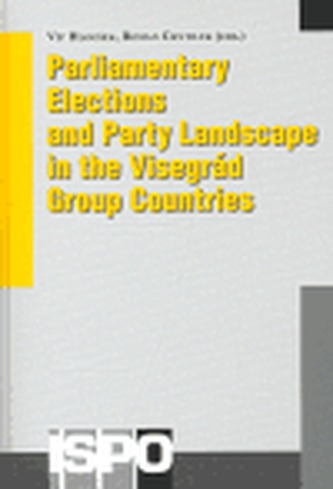Parliamentary Elections and Party Landscape in the Visegrád Group Countries
10
%
125 Kč 139 Kč
Sleva až 70% u třetiny knih
The countries of the so-called Visegrád Group (V4)
were already a relatively common topic in comparative political
science in the 1990s. Not only are they close both geographically
and in terms of their historical and political developments; a
shared heritage of 40 years of communist rule meant that they (and
other Central and Eastern European states) were experiencing a
complicated and often painful threefold transition affecting their
politics, economics, social structures and processes.
An attempt to address not only the consolidation of democracy
in V4 countries but also the metadiscourse of research about them,
this book presents an up-to-date and detailed map of the V4 party
landscape in the years 2005-2006. Its purpose is not only to
address issues relating to elections to the (lower chambers) of
parliament in the countries of the Visegrád Group. The last section
of the present book addresses the question of how consolidated
those countries and their party systems are and suggests what
implications there are for future research in the post-communist
area.
In addition to Sarah Birch, the renowned expert on electoral
systems and their impact on party systems, this book includes
contributions by the following scholars: Roman Chytilek, Jakub
Šedo, Maxmilián Strmiska and Otto Eibl (Czech Republic), Róbert
Tardos and Zsolt Enyedi (Hungary), Artur Wolek and Andrzej
Antoszewski (Poland) and Olga Gyarfášová, Vladimír Krivý and Marek
Rybář (Slovakia). This line-up of contributors brings together
experts from all the countries studied as well as from different
disciplines: it includes comparative political scientists, experts
on electoral studies and sociologists who study electoral behaviour
and electoral alignments.The result is a compact overview and
analysis of party politics and electoral behaviour in the countries
of the Visegrád Group, which will be useful for further research on
this topic and also for the comparative analysis of party systems
and political systems in- and outside the post-communist group of
countries.
The countries of the so-called Visegrád Group (V4)
were already a relatively common topic in comparative political
science in the 1990s. Not only are they close both geographically
and in terms of their historical and political developments; a
shared heritage of 40 years of communist rule meant that they (and
other Central and Eastern European states) were experiencing a
complicated and often painful threefold transition affecting their
politics, economics, social structures and processes.
An attempt to address not only the consolidation of democracy
in V4 countries but also the metadiscourse of research about them,
this book presents an up-to-date and detailed map of the V4 party
landscape in the years 2005-2006. Its purpose is not only to
address issues relating to elections to the (lower chambers) of
parliament in the countries of the Visegrád Group. The last section
of the present book addresses the question of how consolidated
those countries and their party systems are and suggests what
implications there are for future research in the post-communist
area.
In addition to Sarah Birch, the renowned expert on electoral
systems and their impact on party systems, this book includes
contributions by the following scholars: Roman Chytilek, Jakub
Šedo, Maxmilián Strmiska and Otto Eibl (Czech Republic), Róbert
Tardos and Zsolt Enyedi (Hungary), Artur Wolek and Andrzej
Antoszewski (Poland) and Olga Gyarfášová, Vladimír Krivý and Marek
Rybář (Slovakia). This line-up of contributors brings together
experts from all the countries studied as well as from different
disciplines: it includes comparative political scientists, experts
on electoral studies and sociologists who study electoral behaviour
and electoral alignments.The result is a compact overview and
analysis of party politics and electoral behaviour in the countries
of the Visegrád Group, which will be useful for further research on
this topic and also for the comparative analysis of party systems
and political systems in- and outside the post-communist group of
countries.
The countries of the so-called Visegrád Group (V4)
were already a relatively common topic in comparative political
science in the 1990s. Not only are they close both geographically
and in terms of their historical and political developments; a
shared heritage of 40 years of communist rule meant that they (and
other Central and Eastern European states) were experiencing a
complicated and often painful threefold transition affecting their
politics, economics, social structures and processes.
An attempt to address not only the consolidation of democracy
in V4 countries but also the metadiscourse of research about them,
this book presents an up-to-date and detailed map of the V4 party
landscape in the years 2005-2006. Its purpose is not only to
address issues relating to elections to the (lower chambers) of
parliament in the countries of the Visegrád Group. The last section
of the present book addresses the question of how consolidated
those countries and their party systems are and suggests what
implications there are for future research in the post-communist
area.
In addition to Sarah Birch, the renowned expert on electoral
systems and their impact on party systems, this book includes
contributions by the following scholars: Roman Chytilek, Jakub
Šedo, Maxmilián Strmiska and Otto Eibl (Czech Republic), Róbert
Tardos and Zsolt Enyedi (Hungary), Artur Wolek and Andrzej
Antoszewski (Poland) and Olga Gyarfášová, Vladimír Krivý and Marek
Rybář (Slovakia). This line-up of contributors brings together
experts from all the countries studied as well as from different
disciplines: it includes comparative political scientists, experts
on electoral studies and sociologists who study electoral behaviour
and electoral alignments.The result is a compact overview and
analysis of party politics and electoral behaviour in the countries
of the Visegrád Group, which will be useful for further research on
this topic and also for the comparative analysis of party systems
and political systems in- and outside the post-communist group of
countries.
| Autor: | Vít Hloušek |
| Nakladatel: | Centrum pro studium demokracie a kultury (CDK) |
| ISBN: | 978-80-7325-116-1 |
| Rok vydání: | 2007 |
| Jazyk : | Čeština |
| Druh: | 1 x kniha |
| Počet stran: | 196 |
| Zařazení: | sborníky • volební systémy • země Visegrádské skupiny • stranické systémy • parlamentní volby |
Mohlo by se vám také líbit..
-
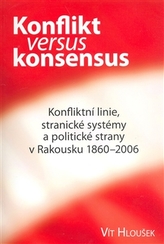
Konflikt versus konsensus
Vít Hloušek
-

Neočekávaná cesta
Paul Williams
-
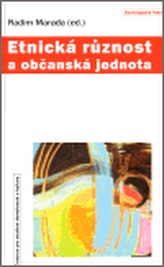
Etnická různost a občanská jednota
Marada Radim
-

Po stopách světových náboženství
Hans Küng
-
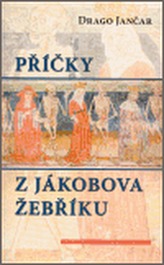
Příčky z Jákobova žebříku
Drago Jančar
-
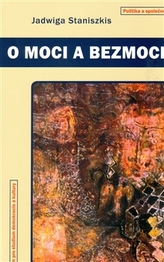
O moci a bezmoci
Jadwiga Staniszkis
-

Duch a nevěsta
Konzal Jan
-
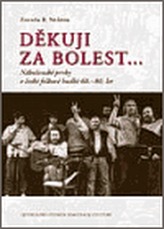
Děkuji za bolest...
R. Zdeněk Nešpor
-

Jednota a mnohost
Martin Jabůrek
-
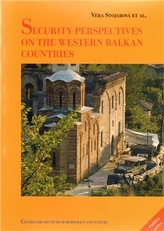
Security perspectives on the Western ...
Věra Stojarová
-
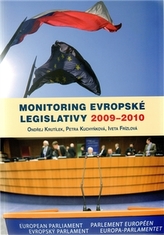
Monitoring evropské legislativy 2009-...
Frízlová Iveta
-

Neklid v Česku
Pavel Maurer
-
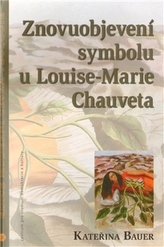
Znovuobjevení symbolu u Louise-Marie ...
Kateřina Bauer
-

Dějinný úděl
Marcel Gauchet
-

Zvolili svobodu
Ivana Ryčlová
-

Po božích stopách
Noble Ivana




